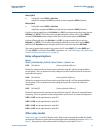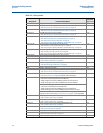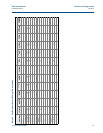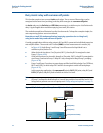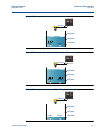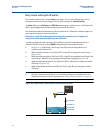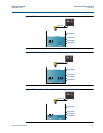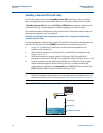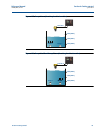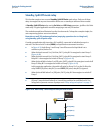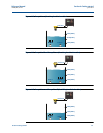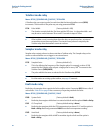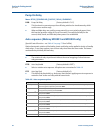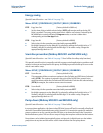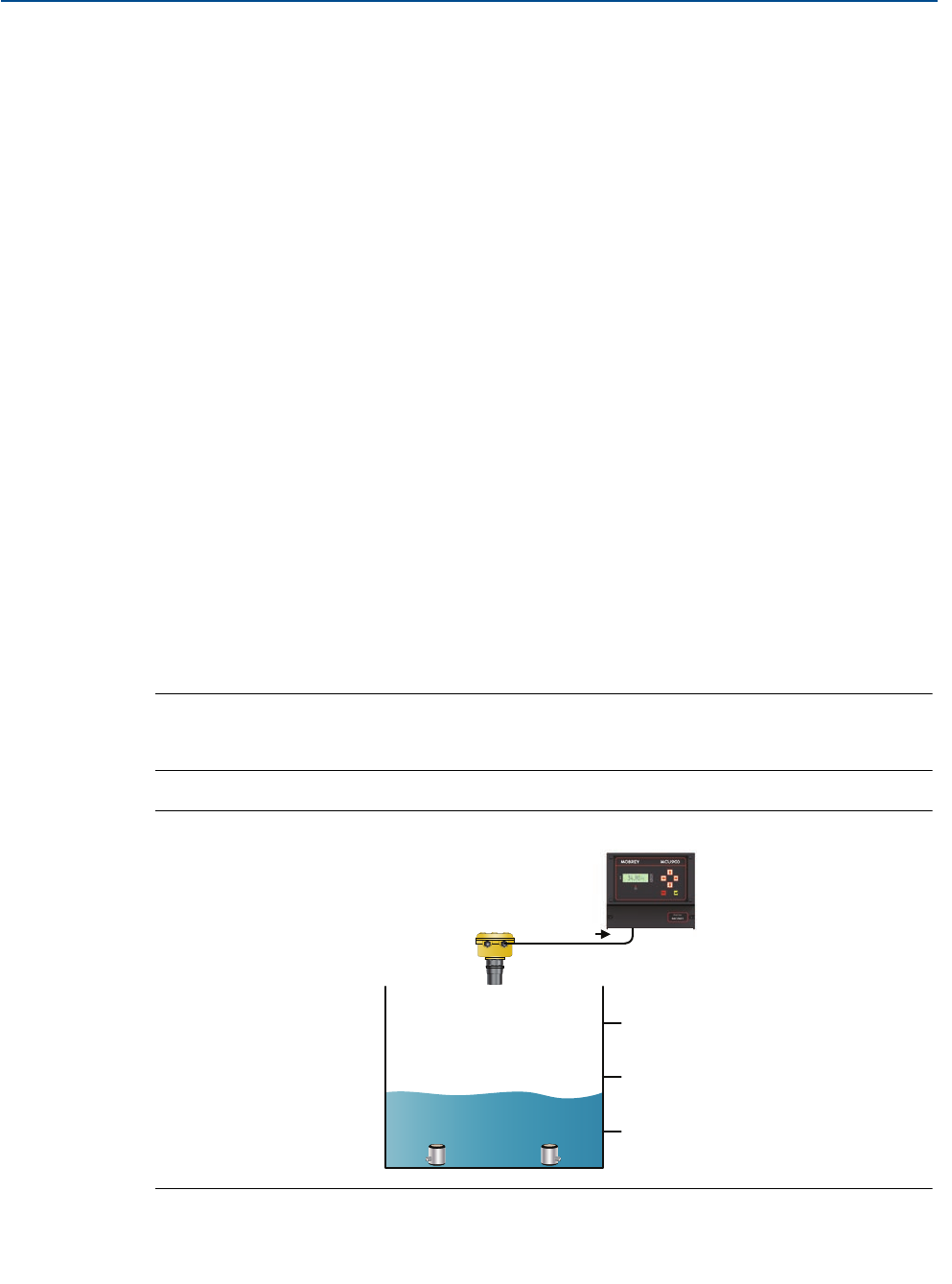
Reference Manual
IP2030/RM, Rev AA
Section 4: Getting started
June 2014
Section 4: Getting started78
Standby, Common Off mode relay
This function requires two or more Standby, Common Off mode relays. Only one of these
relays is energized at any one time and the others are on standby to take over when needed.
A Standby, Common Off relay uses its On Point and Off Point parameters in a similar way to a
Set Point mode relay. A typical application would be emptying a wet well / lift station.
The worked example here illustrates how the function works. To keep the example simple, the
auto-sequencing options are not considered.
Example wet well application (emptying operation due to rising level) using standby,
common off point relays
Consider an application with two relay outputs, RL1 and RL2, connected to individual pumps in a
wet well. The control unit PV value (D800) is a liquid level measurement in metres (m).
In Figure 4-36, both Pump 1 and Pump 2 are off because the liquid level is at a
satisfactory level, below 5 m
When the level rises above 5 m (On point, P411), the relay RL1 is energized to start
Pump 1 (Figure 4-37)
If the level continues to rise and is above 8 m (On point, P421), the relay RL2 is
energized to start Pump 2. Relay RL1 is de-energized to switch off Pump 1 (Figure 4-38)
Pump 2 continues to pump until the level falls below 2 m (Off Point, P412), at which
relay RL2 will de-energize to switch off Pump 2. (Pump 1 is already switched off).
In this emptying application, the common off point is P412 (Off point, relay RL1) and
P422 (Off point, relay RL2), both of which are at the 2 m level.
Note
If Pump 1 had kept the level below 8 m, it would stay switched on until the level is 2 m.
Safeguards to prevent over-use of a pump are in “Relay safeguard options” on page 71.
Figure 4-36. Both Pump 1 and Pump 2 are off (the level is okay)
5.0 m (P411)
8.0 m (P421)
2.0 m (P412 and P422)
Level in m
Pump 1
Pump 2




